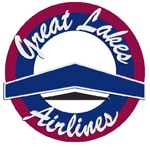

The take-it-or-leave-it negotiating tactics that result from bankruptcies and mergers are all too common in today’s airline industry.
Throughout the turmoil, the employees of the nation’s airlines continue to show up for work and staff more than 25,000 flights every day. UTU members who fly for Great Lakes Airlines are no exception – at least for the time being. Local 40 flight attendants were at the bargaining table with Great Lakes management for 10 years; and Local 40 pilots have been facing a negotiating stone wall for three years.
Following years of fruitless negotiations, and under provisions of the Railway Labor Act, the UTU asked the National Mediation Board to declare an impasse in talks and proffer binding arbitration. “As the NMB mediator has observed, Great Lakes management is not bargaining in good faith and has declined even to consider UTU contract changes,” said UTU Assistant President John Previsich, who is assisting in negotiations.
Local 40 pilots continue to await a decision from the NMB. If the NMB does make that proffer, and Great Lakes rejects it, the clock will start a 90-day countdown to either a negotiated settlement, presidential emergency board recommendations for settlement or a work stoppage if a settlement cannot be reached before the 90-day clock expires.
“Self-help is not UTU’s desired outcome for this process, as it would have a significant negative impact on our members and the public,” Previsich said. “The UTU’s desire is that the parties reach a mutually satisfactory agreement and avoid any interruption in service as Great Lakes is the lone airline serving many small cities and towns.
“The fact remains that our pilots’ working conditions and wages at Great Lakes are substandard, putting daily pressure on those pilots whose highest priority is to fly passengers safely,” Previsich said. “Great Lakes pilots, with extensive training and experience, are among the lowest paid of any scheduled passenger airline in the United States, with some paid less than entry-level retail and food service jobs.”
While the consequences of a work stoppage can be severe for both the company and its employees, the pilot group on Great Lakes stands united, awaiting action from the NMB.
In the words of a member of the negotiating team: “The airline refuses to pay a living wage while reaping millions in profit every year. The pilots are tired of it and we will do whatever it takes to improve the conditions for our members.”
Related News
- WATCH: Railroaders Meet Life’s Risks Head-On
- What Does $73.16/Hour Actually Mean?
- New Jersey Leads with Rail Safey Law
- “The Safety Program That Works — And Why Railroads Won’t Use It”
- Jobs Still Protected After Merger Delay
- Recommit to the Work Ahead this MLK Day
- Federal Protection for Train Crews Promised by Passenger Rail Crew Protection Act
- New Rail Safety Bill Addresses East Palestine “Vent and Burn” Failures
- Philadelphia Bus Operator Reinstated by Arbitration Victory
- Are You Registered to Vote? Check Your Status Today!